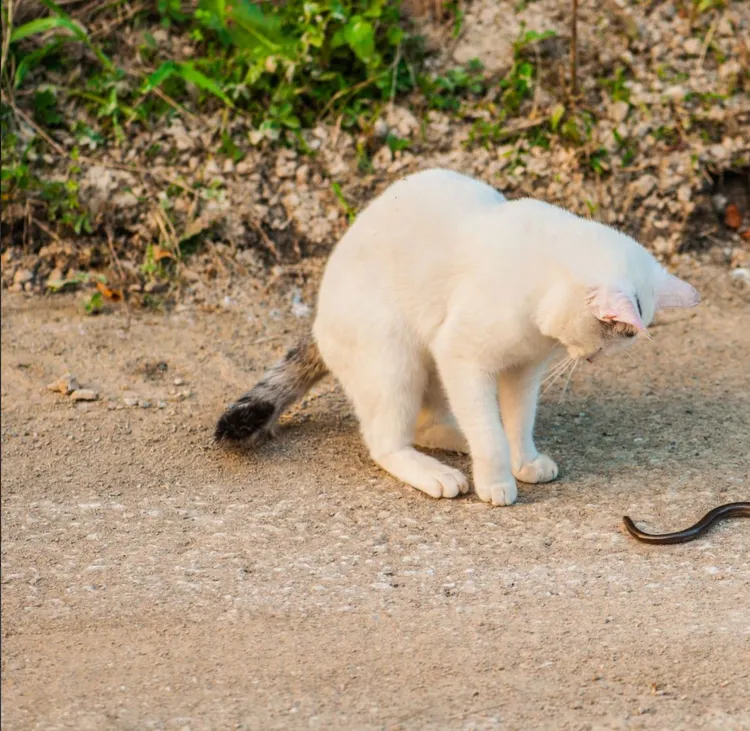As cat owners, we all want our furry friends to be happy and healthy. One common concern for pet owners is worms—those pesky internal parasites that can cause a range of health issues for cats, from mild discomfort to serious illness. Deworming your cat is essential, but the chemicals in many commercial dewormers might make you hesitant, especially if you’re an eco-conscious pet parent.
Thankfully, there are natural alternatives that can help keep your cat parasite-free while aligning with an environmentally friendly lifestyle. In this post, we’ll explore various natural dewormers for cats, how they work, and how to use them safely and effectively. Let’s dive in!
What Are Worms, and Why Do Cats Get Them?
Before we jump into natural remedies, it’s important to understand what worms are and how cats get infected. The most common types of worms found in cats are roundworms, tapeworms, hookworms, and heartworms. Cats can contract worms in several ways, including:
- Ingesting fleas (which can carry tapeworms)
- Eating raw or undercooked meat
- Contact with contaminated soil or feces
- Mother-to-kitten transmission during birth or nursing
Symptoms of worms in cats may include vomiting, diarrhea, weight loss, and lethargy. If you suspect your cat has worms, it’s essential to consult your vet for a proper diagnosis. However, if you’re looking for a natural approach to prevention or mild infestations, several options are available.
Top Natural Dewormers for Cats
Here are some natural and eco-friendly remedies that many cat owners use to help combat worms:
1. Diatomaceous Earth
Diatomaceous Earth (DE) is a natural, non-toxic powder made from the fossilized remains of diatoms, a type of algae. The fine, abrasive texture of DE helps to break down the exoskeletons of parasites like worms without harming your cat.
How to Use It:
- Use food-grade DE (never pool-grade) and sprinkle a small amount (about 1 teaspoon) into your cat’s food once a day for 7-10 days.
- Repeat every few months as a preventive measure.
Eco-Friendly Tip: Diatomaceous Earth is completely natural and environmentally safe, making it a great sustainable option.
2. Pumpkin Seeds
Pumpkin seeds contain an amino acid called cucurbitacin, which paralyzes and eliminates worms from the digestive tract. They are especially effective against tapeworms and roundworms.
How to Use It:
- Grind the raw, unsalted pumpkin seeds into a powder and mix it into your cat’s food. Use about 1/4 teaspoon per 10 pounds of body weight once or twice daily for up to two weeks.
Pumpkin seeds are safe, nutritious, and packed with other health benefits for your cat, making them a win-win!
3. Garlic (Used with Caution)
While garlic is generally toxic to cats in large amounts, some holistic veterinarians recommend using small, controlled doses to combat worms. Garlic is believed to have anti-parasitic properties, but you must be cautious not to overdo it.
How to Use It:
- Consult your vet before using garlic.
- Use only a tiny amount—about 1/4 clove finely minced and mixed into your cat’s food no more than once a week.
Because garlic can be dangerous for cats, it’s best to proceed with extreme caution or avoid it altogether in favor of other safer options.
4. Carrots
Carrots are high in fiber, and when fed to your cat, they can help scrape intestinal walls clean of mucus and worms. While carrots won’t kill worms directly, they can help flush them out of your cat’s system.
How to Use It:
- Grate raw carrots and mix them into your cat’s food.
- Feed a small amount daily for about a week.
Carrots are not only effective for worms but also provide an eco-friendly, natural way to boost your cat’s overall health.
5. Apple Cider Vinegar
Apple Cider Vinegar (ACV) is a popular natural remedy for many health issues, including parasites. Worms don’t like acidic environments, and ACV can help to create a more acidic pH in your cat’s digestive tract, making it less hospitable for worms.
How to Use It:
- Add 1/4 teaspoon of organic, raw apple cider vinegar to your cat’s water daily.
- Monitor your cat to ensure they are drinking enough, as some cats may dislike the taste.
ACV is also good for improving your cat’s coat, and it’s a biodegradable and eco-friendly product!
6. Turmeric
Turmeric is a natural anti-inflammatory and contains curcumin, which has been shown to have anti-parasitic properties. Turmeric can help remove worms while also soothing inflammation caused by parasites.
How to Use It:
- Mix 1/16 teaspoon of turmeric into your cat’s food daily for one week.
- Make sure to give it alongside healthy fats (like coconut oil) to increase absorption.
While turmeric is generally safe, always start with small doses to ensure it agrees with your cat.
Eco-Friendly Deworming Practices
Using natural remedies for deworming isn’t just good for your cat—it’s also a more sustainable and eco-friendly choice. Here are some additional tips to ensure that your cat’s care remains environmentally conscious:

1. Avoid Chemical Dewormers Whenever Possible
Commercial dewormers contain harsh chemicals that can harm the environment when disposed of improperly. Stick to natural remedies when possible, and only use chemical dewormers when absolutely necessary.
2. Use Organic or Sustainable Ingredients
Whenever possible, choose organic, sustainably sourced ingredients for your cat’s natural deworming treatment. For example, opt for organic pumpkin seeds or carrots from local farmers’ markets.
3. Compost Cat Waste Responsibly
If you’re treating your cat for worms, make sure to dispose of their waste properly. Do not use it in compost if there’s a risk of spreading parasites to your garden. Double-bag the waste in biodegradable bags and dispose of it in the trash.
4. Regular Cleaning
Keep your cat’s living area clean to prevent reinfestation. Wash bedding regularly in hot water, and use eco-friendly cleaning products that won’t harm the environment. Regularly cleaning litter boxes with natural cleaners will help keep parasites at bay.
When to Consult a Vet
Natural remedies are a great first step, but severe worm infestations may require stronger treatment. If your cat exhibits any of the following symptoms, consult your veterinarian:
- Severe weight loss
- Persistent vomiting or diarrhea
- Visible worms in feces
- Lethargy
Your vet can help diagnose the type of worms and recommend the best course of treatment, which may include a combination of natural and traditional remedies.

Conclusion
Treating worms in cats doesn’t always have to involve harsh chemicals. With natural remedies like Diatomaceous Earth, pumpkin seeds, and apple cider vinegar, you can effectively manage minor worm infestations and prevent future occurrences while being kind to the planet. Eco-friendly deworming is not only healthier for your cat but also reduces the environmental impact of pet care.
Keep in mind, however, that natural remedies work best for mild cases or as preventive measures. Always consult your vet before trying any new treatment to ensure it’s safe for your furry friend.



